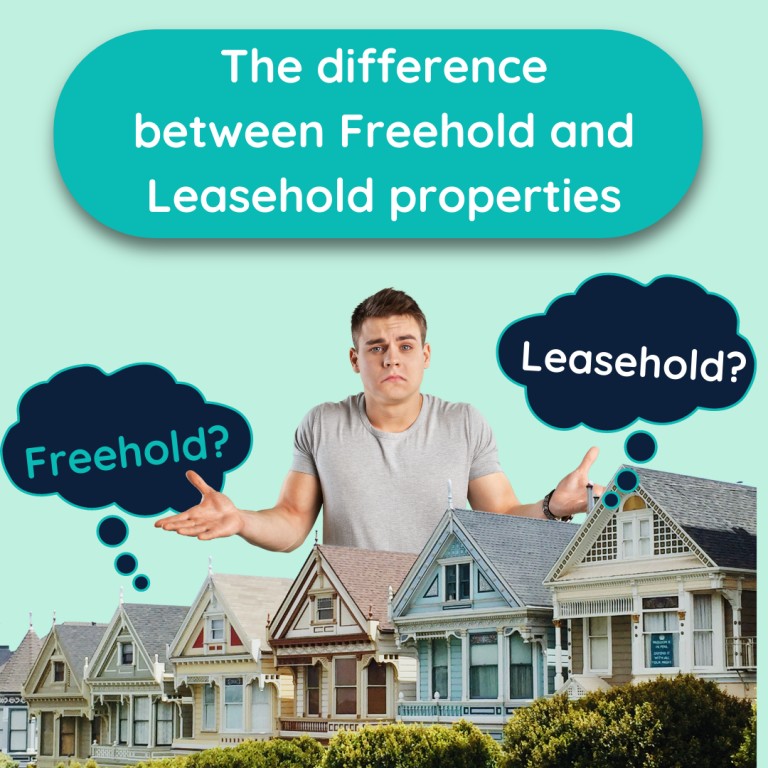


When it comes to purchasing property, the way in which you go about it can make all the difference. There are pros and cons to both freehold properties and leasehold properties which we will explain, but firstly, lets clarify what each one of these terms mean specifically.
A Freehold property is one of the most common types in the UK, and it basically means that you get complete ownership of the land as well as the property – this means all costs are your responsibility rather than your local councils. This includes all kinds of maintenance and repairs and building insurance.
A Leasehold means that you own your property for a designated period, not including the land. You are contracted to a time frame in which will need to be renewed. The land belongs to the landowner once you are technically out of your contract unless you renew it. A lot more paperwork is involved, and generally the less preferable option, but if this is your only option it can still come with its pros.
Lease durations can vary between 9 – 999 years, with the higher being more desirable. If you have a shorter timeframe on your leasehold, it can become problematic in the future, for example, becoming harder to sell and ultimately making the re-mortgaging process more complicated. Over time, the cost of extending your lease increases, so you can end up losing out money in the long run!
While it may seem obvious that Freeholding your property is the major pro – and this is correct in most cases - there are some advantages to lease holding. For example, if you own somewhere small in a large building with communal facilities, you may actually benefit from being in a leasehold contract as its less expensive, especially if you're not looking for a long-term investment – and the landowner is responsible for all the nitty gritty maintenance issues that may arise. The owner is also accountable for the fees and building insurance, so you end up having a short-sweet deal this way, if you are thinking short-term. Also, in the UK, a new practice has come into place stating that leaseholders can now have the right to extend their lease by 990 years maximum – with zero ground rent guaranteed.
The downfalls incredibly important to consider, especially if you are thinking of a good, long-term investment. For instance, with lease holding you may be liable to pay service charges or additional rents for certain parts of the land – and there could be rules around the freedom of your lifestyle, e.g., you are less likely to be able to have full control over whether you’d like to sub-let or own pets. And as stated before, it could be harder to re-sell as the years go on.
Freeholding advantages come more bountiful typically, but as with anything, there are always pros and cons. The major pro of freeholding is that you are in the driver’s seat, which, if you are someone investing and of a business mindset, this may hugely appeal to you – but if you’re just buying your first property and are unsure of your long-term goals, this may not. Another advantage is that your home value never decreases, meaning you are making a more secure investment long term.
The cons, however, to a freehold come at a cost (no pun intended) and its definitely worth considering when weighing up your options. For example, managing a building is a very complex task not everyone is ready or fit for. There could be disputes at risk with other co-freeholders, and you may be tasked to chase up late payers who happen to be friends/neighbours of yours, which always has the possibility to cause tension. Valuations may also be a strenuous task, and can take months to fully complete, especially when co-working with other freeholders.
Whatever you choose to do when you buy, freeholding is ultimately the best option for more experienced landlords and people who are happy to uptake more responsibility – but lease holding doesn’t mean you’re completely worse-off. By weighing up the pros and cons, you should be able to make an informed decision that will suit your individual situation best, and at Clever, we’re always here to help.
If you’re in the buying or selling process, why not get a Free Valuation booked with us today.
By Caitlin Stimpson